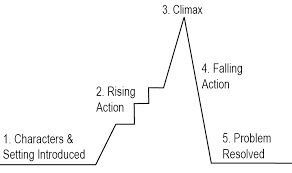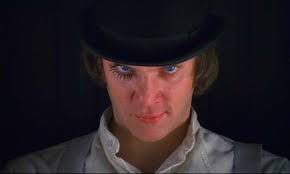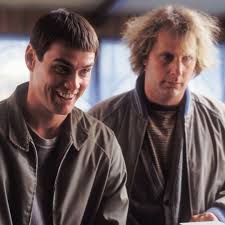Plot is what happens. The story makes us care.
That’s what I wrote on coverage for a script that I read last week. This particular script was fairly well-structured with the act breaks happening relatively close to where they should. It had plenty of conflict between characters whose goals where well-defined. It also had a strong plot that had a series of events that escalated in intensity and danger.
But, man, was that story lacking.
And now you’re asking, “But if it had a good plot, doesn’t that mean it had a good story?” The answer to that is a resounding, “Hell no!”
So now your next question is, ” why wasn’t the story better if it had a decent plot?”
I’ll repeat the answer. Plot is what happens, and it’s the story that makes us care.

Another way to say that is that there’s a lot more that goes into making a story good then just a good plot. There are thematic elements to consider. Does the writer write with a voice that has something to say? Without that, the plot will remain hollow and empty without much story at all.
The thematic elements also makes us care about the characters. There is no story if you don’t care about what happens to the characters. Again, the plot will be nothing more than a series of connected events, but there won’t be a story there.
Now you’re saying, “Hey, Smith, didn’t you say earlier that the characters were well-defined?” Yes, they were well-defined, but that doesn’t mean they were able to generate any sympathy or empathy. They were well-defined in that they had distinct personalities and individual voices that made them come across as individuals and realistic people.
But that’s only part of what goes into creating a GOOD character. Without an emotional connection to the character, they’re just that: a character. When, as a writer, you allow your characters to act in ways that turn people against your character without giving the character a damn good reason for acting that way, you’re predictably going to lose the audience. When you lose the audience, they no longer care about what happens to your character in the script. At that point, you cease to have a story, and you merely have a plot.
That is ultimately what happened with the script that I’m referring to. It had many of the elements that it needed, but I couldn’t bring myself to care about the main character. The thing that’s most unfortunate about that is that the writer was writing about a topic that is very serious and should have been filled with drama. Unfortunately, the lack of sympathy for the characters translated in to a lack of drama in the plot.
Ah, drama, the lifeblood of any screenplay. That is another component that separates plot from story. A good plot combined with compelling characters and intriguing thematic components will give birth to drama. Without drama, you have no story, and the screenplay in question was lacking in drama. How do you get drama? By making the audience care about what happens to the characters.
That leads to your next question, “Okay, smart guy, how do you get the audience to care about the characters?”

That, my friends, is the million dollar question. Some scripts have it and some scripts don’t. There are techniques that scribes who ply their trade writing about the secrets of concocting a successful screenplay have provided. There are a myriad of classes and workshops that you can take to teach you what people in the past have done. Does the main character have to be likable for the audience to care about them? It’s helpful, but not necessary. (See The Hustler or Pulp Fiction). Does the main character at least have to do something good or find redemption? Again, helpful but not necessary. (See Goodfellas or A Clockwork Orange). The point is that there isn’t a magic bullet, but from my own perspective, I have some observations.

In order to get us to care about your characters, must have a want or a need that we can become emotionally attached to one way or another. They also must have a personality that draws us in. They need to be interesting or something interesting needs to have happened to them. Plus, what’s happening to them in the story needs to be interesting. Another thing that they need is common sense. That is unless you’re dealing with the rare occasion that not having common sense is the point. (See Forrest Gump and Dumb and Dumber). But you can’t have a character do things that defy common sense unless there is a good and compelling reason within the framework of your story.

If I had to put my finger on one thing with the script in question, that would be it. The writer had the main character continually and willingly getting into situations that defied common sense. Now, if the writer comes back with another draft of the script and the main character is continuing to do this, but with a compelling reason that makes sense within the context of the plot, then an actual story may be in the offing.
But anything short of that, and we still won’t care about what the characters are going through. If we continue to be apathetic towards the characters, then the writer will still be left with a decent plot and not much of a story.
If you’re working on a screenplay and you need some guidance on turning your plot into a story, we offer seven levels of screenplay coverage in which we evaluate your script and offer suggestions for improvement. Click here to see the services we provide.